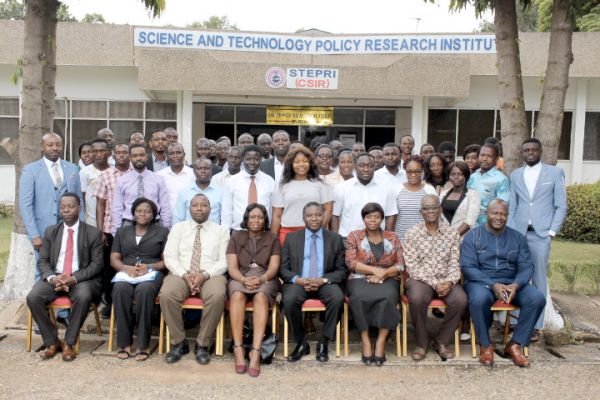
Seek knowledge, not certificates-University don advises youth
The Head of the Department of Economics at the University of Ghana, Professor William Baah-Boateng, has advised Ghanaian youth to move away from the mere crave for academic certificates.
Instead, he said the youth must pursue knowledge and its practical application to have relevance in the job market and life generally.
He said the youth normally put emphasis on certificates rather than what the certificate could do, and that the only way out for the youth was for them to innovate and be critical thinkers, otherwise they would face unemployment.
“Students should understand that the skill they are carrying is theirs and not the teachers’.
We must teach you so that you adapt to every situation that you find yourselves in.
The best form of training is to be able to train the mind to take initiative and think,” Prof. Baah-Boateng said when he spoke on the ‘Quality and Relevance of Education and Skill’ at a workshop on ‘Youth Employment and Entrepreneurship’ in Accra.
“Ghanaian youth must take initiative more. To be able to take up opportunities in employment, you must be innovative, or you will continue to say you have no jobs,” he stated.
The workshop was organised by the Science and Technology Policy Research Institute (STEPRI) of the Council for Scientific and Industrial Research (CSIR), in collaboration with the Ghana Commission for the United Nations Education, Scientific and Cultural Organisation (UNESCO) for selected youth in Accra.
The event, dubbed “Harnessing the Potential of the Youth for the Effective Utilisation of Technologies for Economic Transformation, was part of a youth entrepreneurship project to determine policy actions that would help to reduce youth unemployment.
Unemployment headache
Prof. Baah-Boateng noted that unemployment was a big issue globally and that providing productive and sustainable employment opportunities for young people remained a major socio-economic and political challenge.
Thus, he said the issue posed social and security concerns to governments and citizens.
The United Nations defines the youth to be persons aged 15-24, while the Commonwealth pegs its limits between 15 and 29 years, and for the Africa Union and Ghana 15 to 35 years.
The youth form about 35 per cent of the estimated population of 28,358,410 of Ghana (as of 2017).
Harnessing potential
The Director of CSIR-STEPRI, Dr Mrs Wilhemina Quaye, noted that there were hindrances to commercialising viable economic activities that had the potential to create employment for Ghanaian youth.
These, she said, included the lack of clear aims and objectives, lack of appropriately structured incentives and lack of time, focus, management and a desire to push research and development products and services to the final consumer, customer and market.